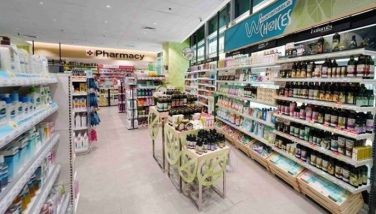Fear and safety

Waking up to the news that there had been an earthquake overnight had me revisiting the question: Am I safe? It’s a question I never really asked until I had children but since then have come to consider on many different levels.
“Lindol!” I had never heard the word before July 16, 1990. I grew up in London where Tagalog-speakers hadn’t needed to utter the word in my presence. I was in the old ABS-CBN newsroom in mid-conversation with a colleague. In my memory, time itself slowed down. In all the years since then, I still think this was the closest experience I have had to pure fear.
There have been other close calls, but for one reason or another they didn’t bother me nearly as much. I think it was because I was so young at the time. I didn’t yet know how casually one’s future can be robbed by circumstance. The tremor began and quicker than a blink, the nature of the eye contact between myself and my colleague changed. Time paused for a heartbeat and the tremor continued. Time changed shape, squeezing more than usual into the moment beyond the heartbeat as everyone suddenly, simultaneously, instinctively, like a herd of deer suddenly picking up the scent of a hungry lion, realized that the earth was still shaking and that we needed to get to safety. Another heartbeat. Pandemonium.
I look back and I think I should’ve been far more afraid several other times and wonder why I wasn’t. In Bangkok, I had another encounter with fear, just before the coup that ousted then Prime Minister Yingluck Shinawatra. Phan Fa Bridge is in a geographically significant spot, in between Democracy Monument (which commemorates the bloodless revolution that ended absolute monarchy in Thailand in 1932 and the transition to a constitutional monarchy) and Royal Plaza and its many royal and government buildings. Throughout recent history Phan Fa has been used as place for political gatherings. Just last week police used tear gas, water cannon and rubber bullets to disperse demonstrators protesting against the current military government’s handling of the COVID pandemic.
Back in February 2014 we had gone out to cover one of several demonstrations that were effectively roadblocks aimed at shutting down the capital city and to protest against Yingluck’s administration. There were many other media there recording as a dozen or so riot police in formation with shields and helmets moved in to try to shift the demonstrators. Again, time slowed and too much happened in a matter of seconds. Someone had hurled a grenade right at feet of the cops. They dropped like skittles at a bowling alley. We found out later that one had been killed. All around bursts of gunfire were going off. It was utter chaos, everyone had hit the ground then stayed low, trying to get to safety. Three more people were reported killed and several more injured.
Once the gunfire stopped and normality returned, my ex-husband emerged from the crowd. He was there for CNN and has seen a lot of violence at frontlines in Bosnia, Iraq, Afghanistan and DR Congo, among others. It was, he said, “one of the worst” he’d ever experienced.
I still wonder why I wasn’t afraid that day. Instead, if anything, I was angry that this was happening to such a great city and country. The violence was cruel and yet also pointless: cruel because anyone who was killed or injured was just collateral damage to the shadowy forces that wanted to grab power; pointless because it wouldn’t work. Even if they succeeded, as indeed they did, it was a power based only on force and would continue to be contested – as it has.
There was also the fact that each of us in the team had made a choice to be there at that time. We knew it was likely there might be violence and had brought protective gear. We had our body armor and helmets and were trained to cope with exactly this kind of situation. It was a matter of taking a reasonable risk of getting out there and knowing what to do to stay safe. “It’s just part of the job,” as my ex used to say.
Being safe is something that seems such an easy thing to take for granted, but earthquakes and conflicts are good at taking any such airy confidence away. Disasters and wars deprive everyone caught in their maelstrom. No one is safe from the fear that can pounce out of nowhere in their proximity. They are not extreme situations for millions of people.
For me, the sense of safety that people have where they live has become something of a gauge by which to measure the success of the powerful in that place. There are lots of different levels to it – how likely are people to experience violence? To fall ill? To die prematurely? To eat, work, live, love and learn, whatever twists and turns their circumstances might take?
Nowadays, COVID-19 is testing a new aspect of people’s sense of safety. Fear, like the virus, is in the air. Am I safe? we all ask, no need for earthquakes or coup attempts.
On Monday, the President will deliver his final State of the Nation speech, set out the political agenda for his last year as President and no doubt go over the success of his term in office. I wonder if it will be worth asking, as we listen, are we safe?
- Latest
- Trending

























